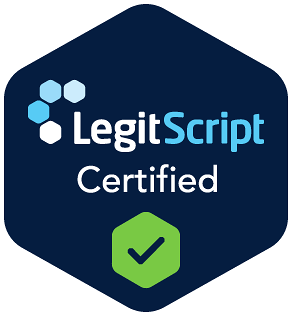Life Skills for Recovering Addicts in New Jersey
What Are Life Skills for Recovery?
Life skills training gives clients practical tools to function well during outpatient addiction recovery in New Jersey. The Garden builds these skills within a whole-person, evidence-based model that pairs therapy with day-to-day coaching.
Programming is available across Partial Care (PC), Intensive Outpatient (IOP), and Outpatient (OP) settings, allowing support to be tailored to match the pace of change.
Life skills for recovery focus on developing routines, effective communication, and problem-solving skills that can be applied to work, school, and family life. Structured life skills groups provide practice in a safe setting, then encourage real-world application between sessions. This approach helps stabilize early recovery and supports long-term progress for individuals seeking life skills for addiction recovery in New Jersey.
Why Life Skills Support Recovery
- Reinforces daily structure for early and long-term recovery. Consistent routines lower chaos, reduce decision fatigue, and make room for therapy, self-care, and a healthy sleep pattern. Regular practice keeps gains visible and builds confidence over time.
- Complements evidence-based therapy and relapse-prevention plans. Skills such as planning, communication, and problem-solving help clients utilize CBT or DBT tools between sessions.
- Fits work, school, and family obligations through outpatient flexibility (PC, IOP, OP). Modular scheduling enables steady progress without disrupting responsibilities. Skills are reinforced across levels for continuity.
- Builds confidence and day-to-day well-being. Competence in finances, time management, and communication improves daily life and reduces stress. Small wins stack up, which supports motivation and sustained change.
Life Skills Topics Covered
Financial management. A simple spending plan prioritizes essentials like housing, food, and transportation. Bills are tracked, automatic payments are set when possible, and a small emergency reserve is built to prevent last-minute crises and protect treatment priorities.
Time management and routines. A weekly calendar maps therapy, groups, work, and rest. Tasks are broken down into manageable steps, with reminders and checklists to keep appointments, medication, and self-care on schedule.
Healthy communication and boundaries. Clear requests, assertive statements, and consistent limits support safer relationships at home, school, and work. Role-plays rehearse difficult conversations and teach how to de-escalate conflict and exit high-risk situations.
Daily living and wellness. Organization at home supports focus and follow-through. Meal planning, creating grocery lists, basic cooking, establishing sleep routines, incorporating light movement, and using stress-management tools all contribute to stability and well-being.
Relapse-prevention alignment. Skills for planning, urge surfing, and crisis response connect directly to coping strategies from therapy. Assignments between sessions build fluency in real-life settings.
Take the first step towards recovery.
Our representatives are standing by to help you start healing today.
What Are Life Skills for Recovery?
Life skills training gives clients practical tools to function well during outpatient addiction recovery in New Jersey. The Garden builds these skills within a whole-person, evidence-based model that pairs therapy with day-to-day coaching.
Programming is available across Partial Care (PC), Intensive Outpatient (IOP), and Outpatient (OP) settings, allowing support to be tailored to match the pace of change.
Life skills for recovery focus on developing routines, effective communication, and problem-solving skills that can be applied to work, school, and family life. Structured life skills groups provide practice in a safe setting, then encourage real-world application between sessions. This approach helps stabilize early recovery and supports long-term progress for individuals seeking life skills for addiction recovery in New Jersey.
Why Life Skills Support Recovery
- Reinforces daily structure for early and long-term recovery. Consistent routines lower chaos, reduce decision fatigue, and make room for therapy, self-care, and healthy sleep patterns. Regular practice keeps gains visible and builds confidence over time.
- Complements evidence-based therapy and relapse-prevention plans. Skills such as planning, communication, and problem-solving help clients utilize CBT or DBT tools between sessions.
- Fits work, school, and family obligations through outpatient flexibility (PC, IOP, OP). Modular scheduling enables steady progress without disrupting responsibilities.
- Builds confidence and day-to-day well-being. Competence in finances, time management, and communication improves daily life and reduces stress. Small wins stack up, supporting motivation and sustained change.
Life Skills Topics Covered
Financial management. A simple spending plan prioritizes essentials like housing, food, and transportation. Bills are tracked, automatic payments are set when possible, and a small emergency reserve is built to prevent last-minute crises and protect treatment priorities.
Time management and routines. A weekly calendar maps therapy, groups, work, and rest. Tasks are broken down into manageable steps, with reminders and checklists to keep appointments, medication, and self-care on schedule.
Healthy communication and boundaries. Clear requests, assertive statements, and consistent limits support safer relationships at home, school, and work. Role-plays rehearse difficult conversations and teach how to de-escalate conflict and exit high-risk situations.
Daily living and wellness. Organization at home supports focus and follow-through. Meal planning, creating grocery lists, basic cooking, establishing sleep routines, incorporating light movement, and stress-management tools all contribute to stability.
Relapse-prevention alignment. Skills for planning, urge surfing, and crisis response connect directly to coping strategies from therapy. Assignments between sessions build fluency in real-life settings.
Treatment Structure at The Garden
- Levels of care: Partial Care (PC), Intensive Outpatient (IOP), Outpatient (OP). Core skills are introduced in PC, reinforced in IOP, and maintained in OP for a smooth arc of care within New Jersey recovery programs.
- Small groups for focused practice. Facilitators guide interactive exercises, role-plays, and feedback to strengthen retention.
- Individual therapy plus group therapy. One-to-one sessions personalize goals and address individual barriers, while group sessions provide repetition, peer learning, and accountability.
- Case management and coordination. Practical support with scheduling, paperwork, and community resources reduces friction, allowing clients to apply new skills in their daily lives.
- Step-down continuity. As stability improves, clients transition from PC to IOP and then to OP, maintaining the same skills framework and weekly rhythm. Momentum carries forward, and long-term recovery stays supported.
Who Benefits
- Individuals balancing work, school, or caregiving who need the scheduling flexibility of PC, IOP, or OP.
- People managing a substance use disorder with co-occurring mental health concerns who need structured, practical support for daily life.
- Clients stepping down from higher intensity services who want long-term recovery skills that carry into home, work, and community settings.
Life Skills Within The Garden’s Integrated Care
- Cognitive Behavioral Therapy (CBT) reshapes unhelpful thoughts and habits by linking planning and problem-solving with coping tools used throughout treatment.
- Trauma therapy within trauma-informed care ensures that skills are paced and titrated to safety and readiness.
- DBT fosters emotional control and healthier relationships by practicing clear communication and boundaries.
- Motivational Interviewing builds commitment, highlights personal values, and supports consistent practice outside the group.
- Family Therapy aligns the home support system with new routines and communication skills.
- Medication management and MAT coordination, when clinically indicated, ensure skills work in conjunction with prescriber-guided care.
What to Expect in a Life Skills Group
- Assessment and goal setting. Facilitators identify daily priorities, barriers, and strengths, then map realistic goals tied to work, school, home, and community life.
- Skill practice. Sessions begin with instruction, followed by role-plays, problem-solving drills, and worksheets. Participants rehearse scripts for common challenges and receive feedback that focuses on clarity, follow-through, and confidence.
- Real-world assignments. Between sessions, participants apply learned skills in everyday settings and track their outcomes. The following meeting reviews what worked, what was difficult, and which adjustments will improve consistency.
- Next-step plan. The group and facilitator update goals, identify resources, and coordinate with the primary therapist or case manager to ensure skills align with the broader treatment plan and level of care.
Life Skills for Lifelong Recovery
- Budgeting Basics: a monthly plan for essentials, bill tracking, and spending priorities that reduce crises and protect treatment focus.
- Time Management and Routines: calendaring sessions, support groups, and self-care to build a reliable structure for daily life in recovery.
- Healthy Communication and Boundaries: clear requests, respectful limits, and conflict skills that strengthen relationships.
- Relapse Prevention Planning: trigger awareness, coping steps, and follow-through checklists that align skills practice with long-term sobriety goals.
Accessing Life Skills for Recovery in New Jersey
- Clinical assessment and treatment plan mapping to identify goals and fit.
- Level-of-care placement in PC, IOP, or OP based on clinical need.
- Insurance review to confirm benefits and expected out-of-pocket costs.
- Program orientation with schedules, expectations, and first session date.
Frequently Asked Questions about Life Skills for Recovering Addicts in New Jersey
Which levels of care include life skills groups for addicts?
Life Skills Development is available in Partial Care, Intensive Outpatient, and Outpatient programming.
How big are life skills groups?
Groups are intentionally small, typically 8 to 10 clients.
Can family members be part of the plan?
Yes. Family Therapy and Family Systems Therapy help align the home support system.
Do life skills work alongside evidence-based therapy?
Yes. Skills are integrated with CBT, DBT, trauma-informed care, and relapse prevention planning. [5]
Is this available to those coming from detox or residential?
Yes. The Garden coordinates placements and step-downs into outpatient care in New Jersey.
Sources
[1] Kitzinger, R. H., Gardner, J. A., Moran, M., Celkos, C., Fasano, N., Linares, E., Muthee, J., & Royzner, G. (2023). Habits and Routines of Adults in Early Recovery from Substance Use Disorder: Clinical and research implications from a mixed methodology Exploratory study. Substance Abuse Research and Treatment, 17. https://doi.org/10.1177/11782218231153843
[2] Treatment Methods & Evidence-Based Practices. (n.d.-b). National Association of Addiction Treatment Providers. https://www.naatp.org/treatment-methods-evidence-based-practices
[3] Co-Occurring disorders and other health conditions. (n.d.). https://www.samhsa.gov/substance-use/treatment/co-occurring-disorders
[4] Chand, S. P., Kuckel, D. P., & Huecker, M. R. (2023, May 23). Cognitive Behavior Therapy. StatPearls – NCBI Bookshelf. https://www.ncbi.nlm.nih.gov/books/NBK470241/
[5] Goldstein, E., Chokshi, B., Melendez-Torres, G., Rios, A., Jelley, M., & Lewis-O’Connor, A. (2024). Effectiveness of Trauma-Informed care implementation in health care settings: systematic review of reviews and realist synthesis. The Permanente Journal, 28(1), 135–150. https://doi.org/10.7812/tpp/23.127



